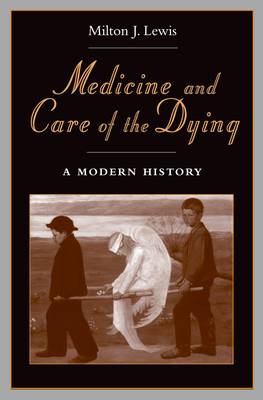
- Retrait gratuit dans votre magasin Club
- 7.000.000 titres dans notre catalogue
- Payer en toute sécurité
- Toujours un magasin près de chez vous
- Retrait gratuit dans votre magasin Club
- 7.000.000 titres dans notre catalogue
- Payer en toute sécurité
- Toujours un magasin près de chez vous
82,45 €
+ 164 points
Description
There is a growing conflict in medicine between the research imperative, with its implicit goal of overcoming death itself, and the re-emergent clinical imperative to treat death as a part of life, and to make the process of dying as tolerable as possible. Central to this conflict is the rise of scientific medicine and the decline of religious and associated moral discourses. Many of the Anglo Saxon countries are also marked by a moral and religious pluralism which breeds controversy over bioethical issues such as euthanasia. It seems that modern medicine has put the cure of bodies before the care of persons. Some scholars attribute this to a metaphysical heritage of dualism and reductionism. This heritage has become problematic in the modern age when waning belief in a divine order leaves the individual self as the bearer of meaning. At the same time, knowledge about nature and society has been increasing at such an accelerated pace, it has become even more difficult to develop a unified secular worldview. When the dying self contemplates its own disintegration in this context, the search for meaning may rest heavy indeed. Chapters one and two address these larger issues. Chapter three focuses on medicine's approach to cancer as a prime example of the strengths and weaknesses of the research imperative. Chapter four looks at the diffusion of the theory and practice of palliative care throughout the Anglo Saxon world. The fifth chapter discusses the development of effective pain control, essential to palliative care and one of modern medicine's unsung triumphs. The sixth chapter addresses the changing meaning of euthanasia in Western history in the past century, as it transitioned from a philosophical position to a widely-debated policy proposal. This book is for palliative care practitioners, and all health care professionals with an interest in end-of-life care. It is also for students in palliative care and the history of medicine, and for anyone interested in the history of this intriguing field.
Spécifications
Parties prenantes
- Auteur(s) :
- Editeur:
Contenu
- Nombre de pages :
- 288
- Langue:
- Anglais
Caractéristiques
- EAN:
- 9780195175486
- Date de parution :
- 16-10-06
- Format:
- Livre relié
- Format numérique:
- Genaaid
- Dimensions :
- 165 mm x 236 mm
- Poids :
- 630 g







